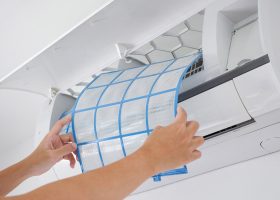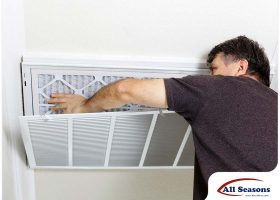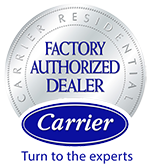While myths are often harmless and easily debunked, some persist and widely believed by some people. In terms of indoor air quality, such myths and misconceptions can impact someone’s quality of living, perhaps even affect their health over the long term. In today’s post, All Seasons Inc. debunks some of these persistent myths.
… Continue ReadingTips on Choosing the Right HVAC Air Filters
Since plenty of HVAC air filters are available on the market, choosing the best one can be a challenge. In addition, you need to consider the impact of your choice in air filter on your system’s energy efficiency and indoor air quality. To help you out, here the professional HVAC contractors from All Seasons Inc. share some helpful tips.

Know the Different Types of Air Filters
First, you need to be familiar with the different types of air filters. This way, it will be easier for you to find the filter that best suits your HVAC system and will perform the way you want. We list a few types of air filters you should consider here:
- Flat panel filters – These filters are made of fibrous materials such as fiberglass, polyester or other synthetic material. While flat panel filters are the most affordable option, they’re also the least efficient. They’re great at keeping large debris out of your HVAC system, but they can’t catch the smaller particles.
- Washable filters – As the name implies, these filters can be washed and reused. As such, they’ll save you from having to buy new filters frequently. However, take note that washable filters generally have low efficiency and get dirty fast. Even if you regularly wash these filters, they can still develop bacteria and mildew.
- Pleated filters – These filters are typically made of synthetic material or a cotton-polyester blend. Due to their greater surface area and density, pleated filters trap tiny particles such as mold spores less efficient filters might miss. If you want to improve indoor air quality, pleated filters are the best solution.
- High-efficiency particulate air (HEPA) filters – These filters capture 99.97% of passing particles, including the tiniest smoke particles. However, the dense filter material may slow down the flow of air. Since most residential HVAC systems don’t have a strong enough fan motor to compensate, a HEPA filter can damage the motor. To improve indoor air quality, a portable air cleaner with a HEPA filter is a good choice. Whole-house HEPA filtration is also another option to consider.
Understand Filter MERV Ratings
Minimum Efficiency Reporting Value (MERV) is a measurement of how well air filters can keep out particles in the air, how efficiently air flows through them and how long the filter lasts. The MERV scale ranges from 1 to 20. The higher the MERV, the more efficient the filter. Take note that although filters with a higher MERV rating can’t eliminate the need for dusting, they may reduce it.
Air filters rated MERV 1 to 4 provide a basic level of protection for your system but don’t necessarily clean it. If you’re looking for ways to improve indoor air quality, MERV 5 to 8 is the range in which to start. Meanwhile, MERV 9 to 12 filters are the ideal choice, as they trap 95% of the particles passing through them. While filters that are MERV 13 and above may be the most effective, they can interfere with your system’s airflow. To determine which MERV rating best suits your home, be sure to consult your HVAC contractor.
Consider the Maintenance Requirements
When choosing air filters, you also need to consider the maintenance requirements. As such, don’t forget to check the filter change schedule. You can usually find the schedule listed on the filter’s packaging, as well as recommendations based on the filter and your home’s conditions.
Trust All Seasons Inc. to help you choose the right air filter for your home! Rest assured our team of expert contractors will provide top-quality services. Call us today at (253) 879-9144 or fill out our contact form to schedule an appointment. We proudly serve homeowners in Tacoma, WA, and the surrounding communities.
















